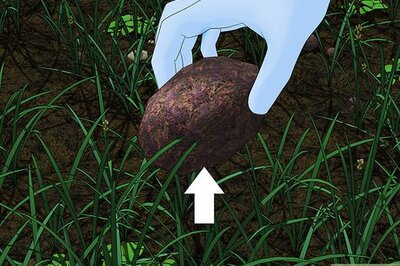
views
A mosquito-borne tropical disease has become quite prevalent following bouts of incessant rain, along with diseases like malaria, and chikungunya, the symptoms of dengue include fever, headache, muscle and joint pains along with skin rash. Unfortunately, there is not a vaccine for the monsoon disease and the only way to protect from mosquitoes is by improving hygiene levels so as to prevent breeding of mosquitoes and mosquito bites. Paracetamol can be taken to bring down fever and reduce joint pains.
Notably, dengue is characterised by severe flu-like symptoms that affect infants, children and adults alike and could prove to be fatal. The various symptoms include severe headache, pain behind the eyes, nausea, vomiting, swollen glands, muscle and joint pains and rash.
Symptoms of dengue usually last for two days to a week and could progress to severe dengue, a potentially fatal complication that is caused by the leaking of plasma, fluid accumulation, respiratory distress, severe bleeding and organ failure.
The warning signs to look out for in case of dengue occur 3-7 days after the initial infection and is characterised by a decrease in temperature, severe abdominal pain, persistent vomiting, rapid breathing, bleeding of gums, fatigue and blood in vomit.
With dengue cases being at an all-time high across various cities in the country, a lot of people are panicking and often self-medicate in order to rid themselves of irritation or discomfort.
Since dengue presents as a fever with body ache, in the beginning, a number of people mistake it to be viral fever. They end up self-medicating by availing themselves of Aspirin or Ibuprofen.
However, this can be dangerous and cause severe bleeding.
The infecting organism in dengue affects the platelets which are responsible for clotting and in turn increase the tendency for a person to bleed.
Aspirin and Ibuprofen, too, have similar reactions to the human body. Together they could cause the person to bleed excessively pushing the person towards 'Dengue Shock syndrome'. Once the person reaches that stage, immediate medical attention and hospitalisation is necessary.




















Comments
0 comment